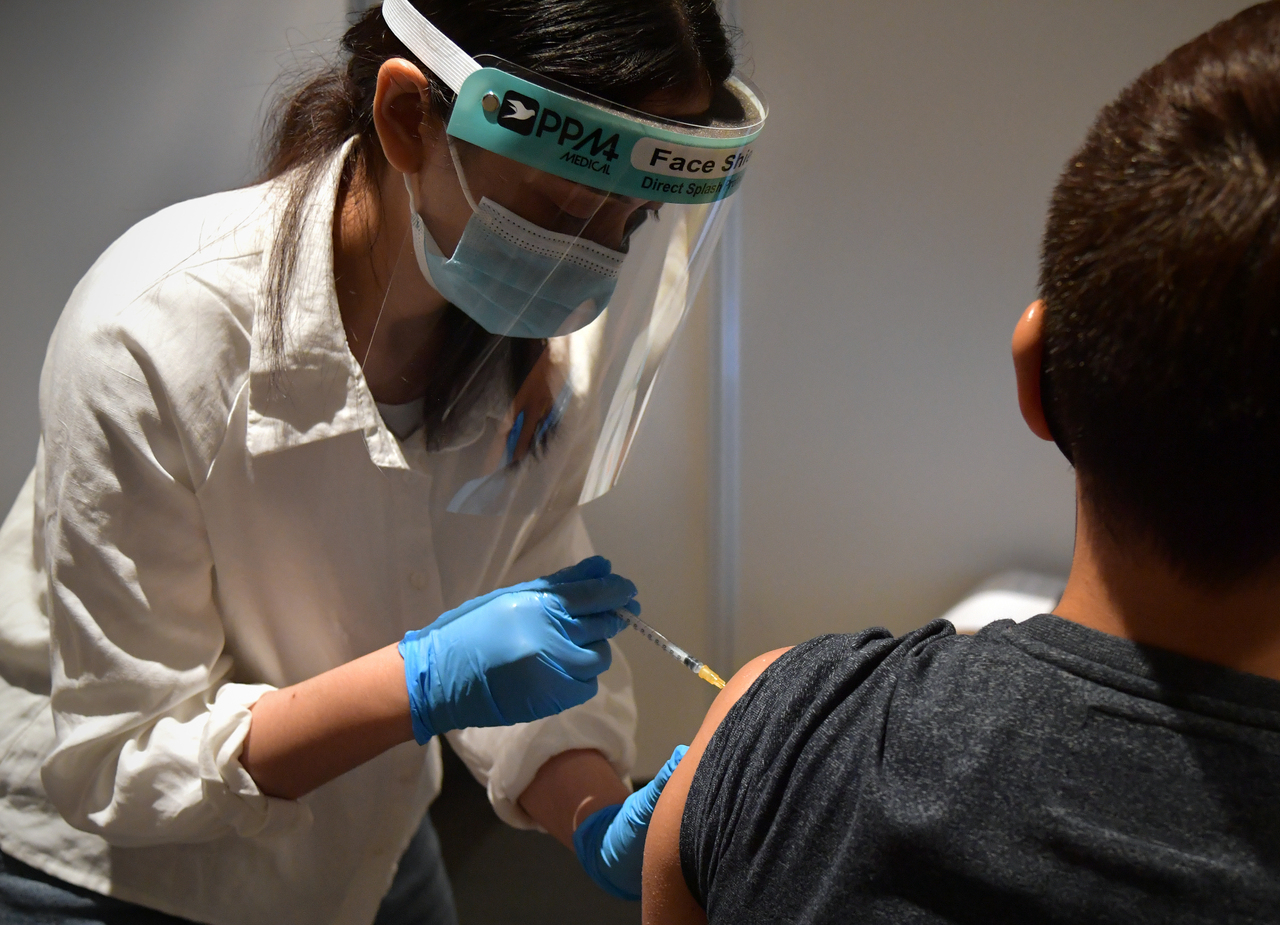Antibodies more potent after third Covid-19 jab, or after vaccinated person gets infected: Study
Sign up now: Get ST's newsletters delivered to your inbox

Someone who had one dose of vaccine and got infected had a stronger immune response than someone who had taken their two shots.
PHOTO: ST FILE
SINGAPORE - A combination of infection and mRNA vaccination gives better protection against Covid-19. But after a booster jab, the protective quality of the antibodies is almost equal to full vaccination plus infection.
This is the finding of a German study that followed 171 people aged 18 to 65 from near the start of the pandemic in the spring of 2020 till the end of last year.
The researchers also found that this applied to all Covid-19 variants of concern (VoC), including Omicron, which now causes more than 95 per cent of global infections.
The results of the study, which has been peer reviewed but not yet edited for publication, were made available online early by the Nature Medicine journal on Jan 28.
The vaccine used was the Pfizer mRNA vaccine, and protection was measured based on the quantity and binding quality of antigens in the subjects' blood.
The study found that infection alone may not give sufficient protection, but it provided superior immunity for vaccinated people when compared with an additional dose of vaccine.
In other words, someone who had one dose of vaccine and got infected had a stronger immune response than someone who had taken their two shots.
Similarly, someone who had two doses and got infected had better protection than someone with three jabs.
"Our results support the notion that a single infection with Sars-CoV-2 does not provide a similar level of protection as the combination of infection and vaccination," the researchers said.
The study also found that the timing of the vaccination was important. People who had been infected seemed to have little added advantage between getting one dose of the vaccine, or two doses three weeks apart - but they do have more protection if the second vaccination is given several months later - very much like a booster shot.
The protection from getting a third jab of the vaccine nine months after the second resulted in high levels of protection in all the subjects, regardless of prior infection status.
In fact, after three mRNA shots, the protection afforded was almost similar for both those who had not been previously infected and those who had.
A booster gave people who had not been infected a 42-fold increase in protection against the Omicron variant, and a 14-fold increase in convalescents. This showed "the particular relevance of a third vaccination to be able to neutralise this VoC".
The study turned up a surprise for the researchers. They found no direct link between antibody levels and protection against severe illness. So, they reanalysed the data "for the dynamics of neutralisation activity against the different VoCs over time".
This uncovered the fact that three consecutive spike antigen exposures - either through vaccination or infection - made each antibody more powerful in fighting the virus, leading them to conclude that "quality rather than the mere quantity of antibodies is important".
Their further analysis showed that the "high neutralisation capacity per antibody unit" in infected people against all variants increased slightly after the second shot and became more pronounced after the third jab.
For people who were not infected, the neutralisation rate was low after the first two shots, though it increased over time. But with the booster jab, protection reached levels comparable to those seen in the infected group.
While they found that three jabs provide better protection against infection than two, the researchers said: "Protection from severe Covid-19 may already be achieved after two antigen encounters, in particular in children and young adults."
In Singapore, 61 per cent of the population has received booster shots. Those who have not gone for a booster include people who had been infected, for whom boosters are currently not needed.
Professor Ooi Eng Eong an expert in emerging infectious diseases, said: "All data points towards vaccine-induced immunity, with or without infection, being effective in preventing severe Covid-19."
This, he said, is enough protection for Singapore to treat the disease as endemic.
Associate Professor Hsu Li Yang, an infectious diseases expert at the NUS Saw Swee Hock School of Public Health, said the study supports what is known or has been assumed from other studies: That three doses of vaccine, or two doses and an infection, result in antibodies that get better and better at binding to the coronavirus.
Based on convalescents who got three vaccine jabs, "there is a suggestion that further doses can further improve the 'quality' of antibodies, but whether that translates to lower risk of severe illness is not known", he added.
Prof Hsu said a limitation of the study is that only antibodies were studied. This is only part of the body's immune response, which also includes T-cells. Another is how long the protection from the third dose will last, since the study was done four months after the third dose.
Professor Dale Fisher, a senior infectious diseases consultant at the National University Hospital (NUH), added: "I believe we need to let the non-vulnerable get infected every year, as with other upper respiratory tract infections, and we vaccinate the over-60s and immune-suppressed every year."


